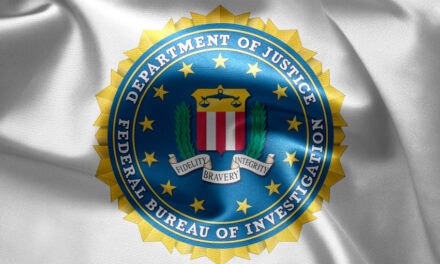We support our Publishers and Content Creators. You can view this story on their website by CLICKING HERE.
- More than 100 salmonella cases linked to contaminated cucumbers have been reported across 23 U.S. states and Canada.
- The affected cucumbers were sold at major retailers like Costco and Walmart.
- Symptoms of salmonella poisoning include nausea, diarrhea, and fever, with severe cases requiring hospitalization.
- Costco also recalled 10,000 cartons of organic eggs in five Southern states due to salmonella concerns.
- Health officials urge thorough washing of produce and proper food safety practices to prevent infection.
The number of salmonella cases linked to contaminated cucumbers in the U.S. has surged, with 100 people across 23 states now reporting illnesses. This alarming rise in infections has prompted health officials to issue urgent warnings about the consumption of these vegetables. The outbreak, which began in October, shows no signs of slowing down, and experts predict the number of cases will continue to climb in the coming weeks.
The affected cucumbers were distributed to a wide range of states and retailers, including major grocery chains and specialty stores. States reporting cases include California, Texas, Michigan, New York, and many others. The cucumbers were also sold in Canadian provinces such as Alberta and British Columbia. Major retailers implicated in the recall include Costco, Sprouts Farmers Market, Sam’s Club, Ralph’s, Smith’s, and Walmart, among others. Consumers should check their refrigerators for cucumbers with labels such as “SunFed Mexico” or those packaged in clear PamPak bags.
Salmonella poisoning, also known as salmonellosis, can cause severe gastrointestinal distress and other symptoms. Common signs include nausea, vomiting, diarrhea, abdominal cramps, and fever. In some cases, people may experience bloody stool, and dehydration can occur, particularly in vulnerable populations such as children, the elderly, and those with weakened immune systems. Severe cases may even require hospitalization.
If you purchased cucumbers between October 12 and November 15 and suspect they may be part of the recall, do not consume them. Instead, discard the cucumbers immediately and thoroughly clean any surfaces or utensils that may have come into contact with them to prevent cross-contamination. If you experience any symptoms of salmonella poisoning, be sure to seek medical attention right away.
Costco recalls eggs over salmonella concerns
Meanwhile, Costco customers in five Southern states are being urged to check their refrigerators as more than 10,000 cartons of organic eggs are being recalled due to potential salmonella contamination. The eggs, sold under the Kirkland Signature brand, were supplied by New York-based Handsome Brook Farms and distributed to 25 Costco locations in Alabama, Georgia, North Carolina, South Carolina, and Tennessee.
The recalled eggs, which were mistakenly packaged and distributed despite not being intended for retail sale, include cartons with the numbers 327 and P1363 and a use-by date of January 5, 2025. Although no illnesses have been reported, consumers who purchased the affected eggs are advised to discard them or return them to Costco for a full refund.
Preventing salmonella infection
To avoid becoming part of this growing outbreak, it is crucial to take precautions when handling and consuming any type of fresh produce, not just cucumbers. Salmonella bacteria often infiltrate food through contact with animal feces, so it’s essential to wash all fruits and vegetables thoroughly before eating them. Additionally, you should avoid purchasing produce that appears damaged or has an unusual odor. If you’re unsure whether a product has been recalled, contact the retailer where it was purchased.
Health officials also recommend practicing proper food safety techniques, such as washing your hands thoroughly before and after handling raw produce and keeping raw fruits and vegetables separate from cooked or ready-to-eat foods. These simple steps can significantly reduce your risk of infection.
The ongoing salmonella outbreak serves as a stark reminder of the importance of vigilance when it comes to food safety. As the number of cases continues to rise, staying informed and taking proactive measures can help protect you and your family from this preventable illness.
Sources for this article include:

 Conservative
Conservative  Search
Search Trending
Trending Current News
Current News 





